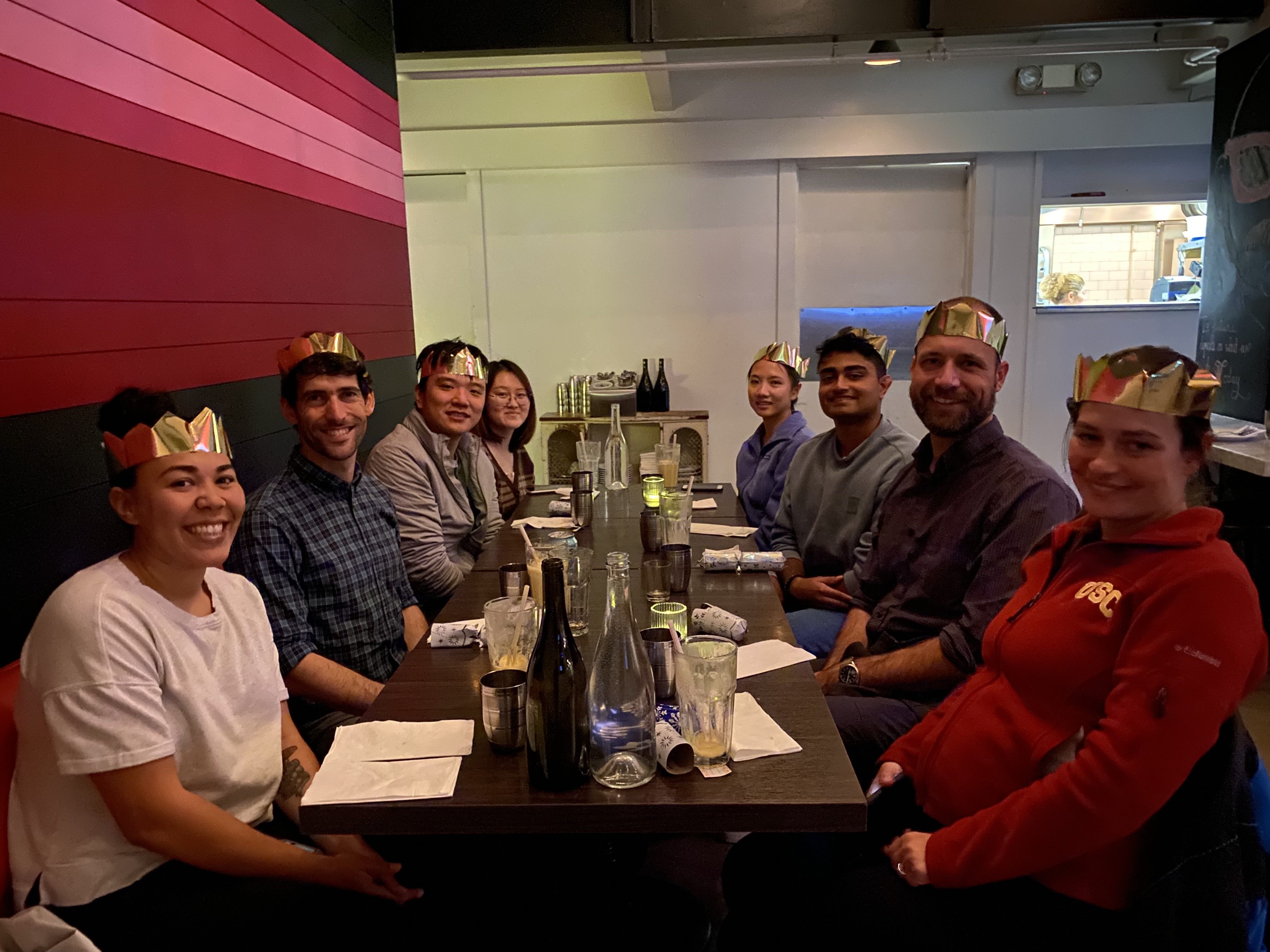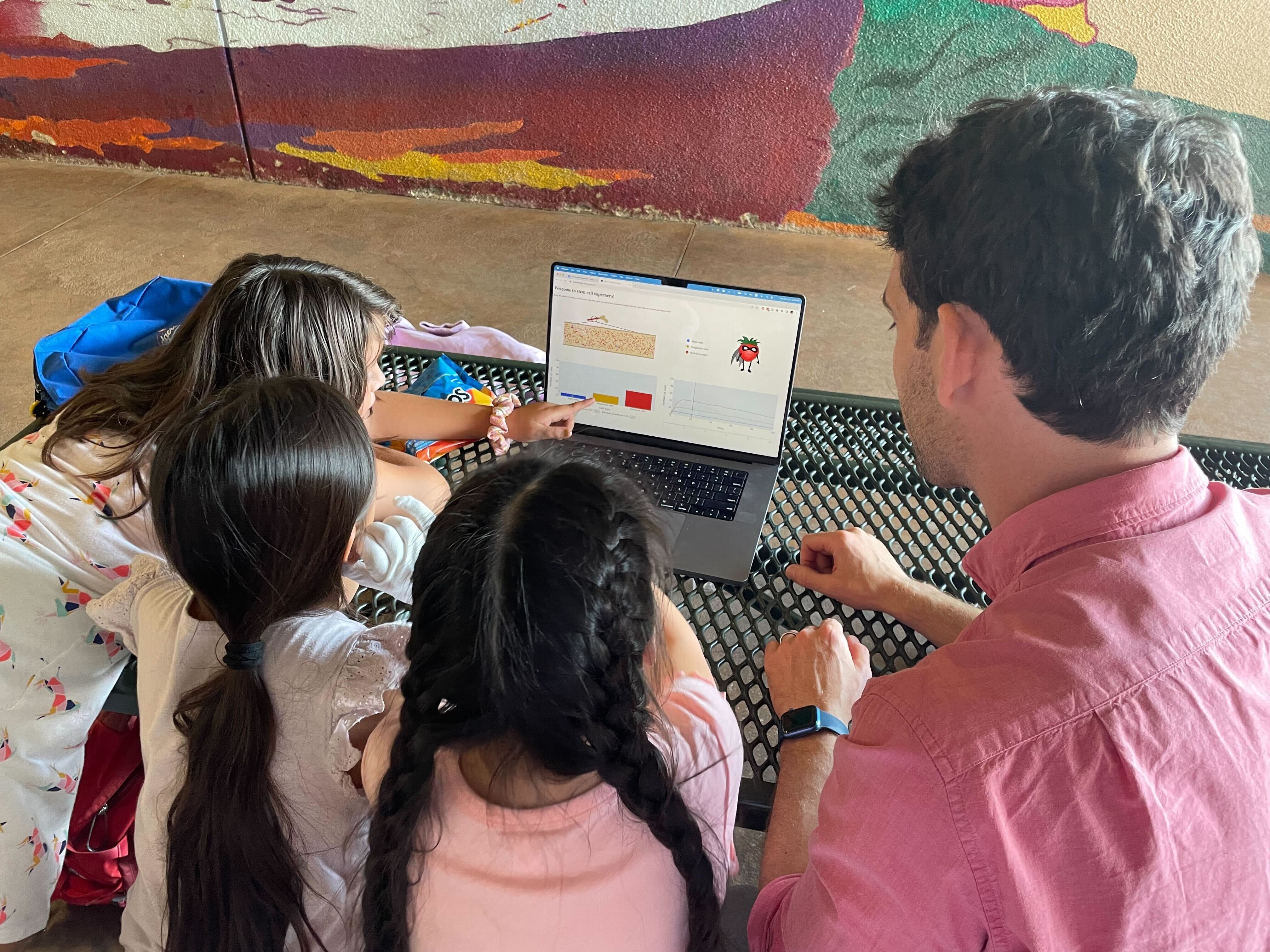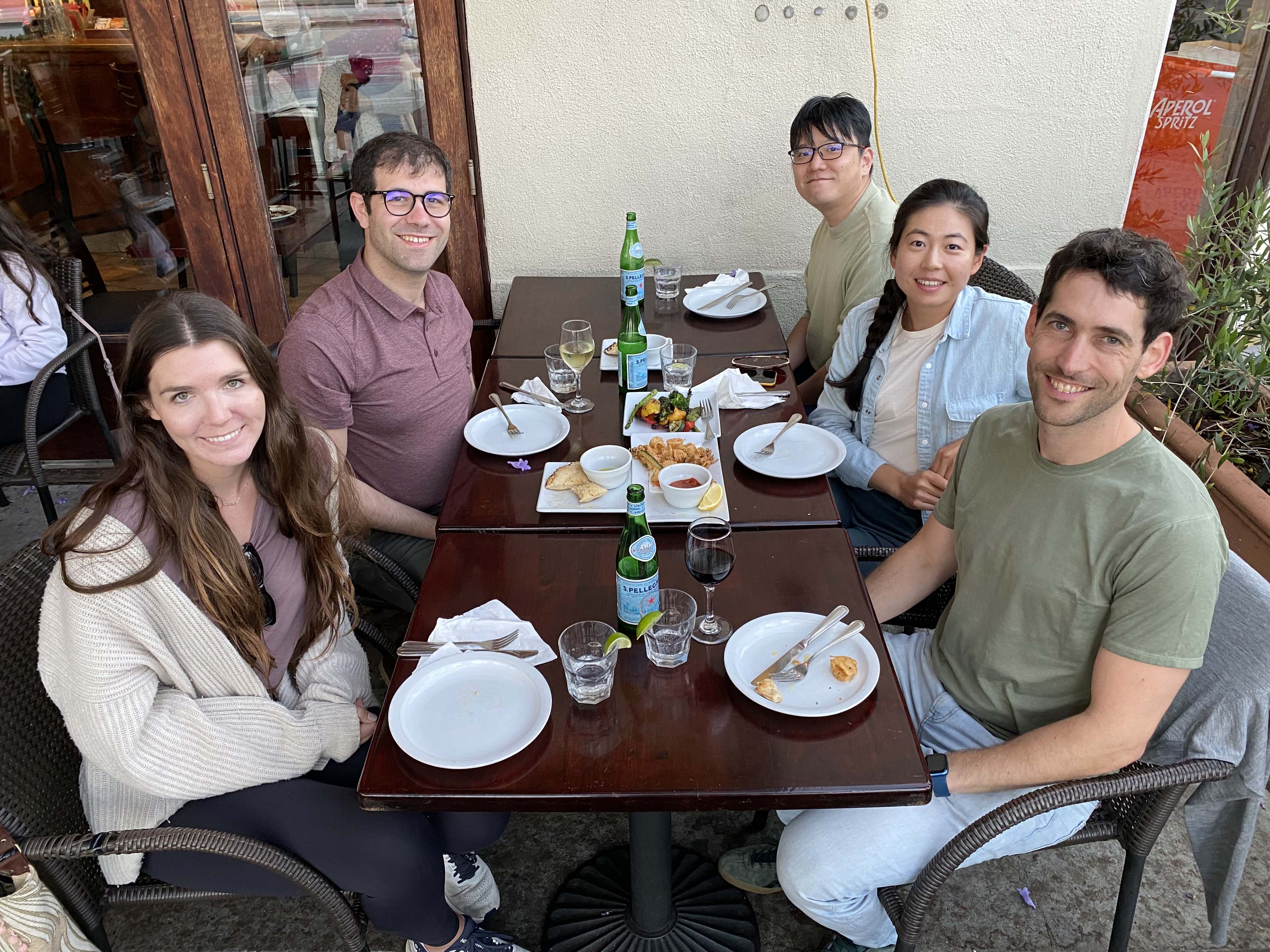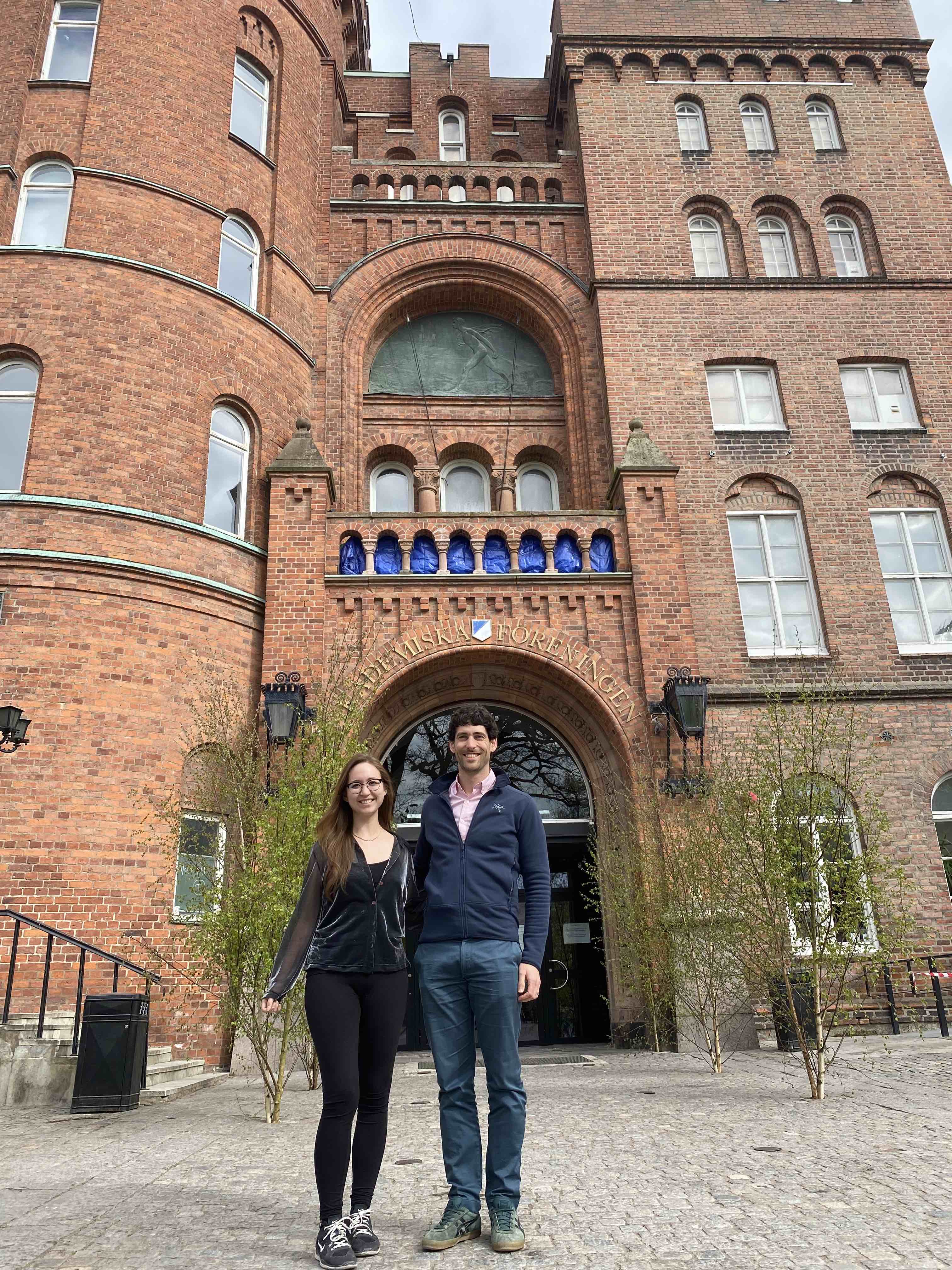
Celebrating the end of another year with an Indian meal in DTLA, joint with the Edge & Mooney labs. (Adam imposing his British hat-wearing traditions onto the group.) Here’s to a happy and successful 2023.

Celebrating the end of another year with an Indian meal in DTLA, joint with the Edge & Mooney labs. (Adam imposing his British hat-wearing traditions onto the group.) Here’s to a happy and successful 2023.

Adam was invited to participate in the Wonderkids program with an in-person visit to a local elementary school, and online via the Virtual Wonderkids after-school program. It was a pleasure to meet and talk to the kids, they asked some fantastic questions. (And also some questions that were more of a comment.)
Our outreach game stem cell superhero is now online! Can you keep superhero happy with the right composition of blood in the bone marrow? Open source code in Julia is available here. This outreach project was created by Jesse, Xiaojun, Megan, and Adam, with contributions from the lab.
Jesse was awarded a Mistletoe Research Fellowship from the Momental Foundation. This award will fund his research modeling cancer/virus evolution and developing methods to integrate large biological datasets into dynamic mathematical models, in close collaboration with experimental and industrial partners. Congratulations Jesse!
Jesse leads analysis into the tumor-immune dynamics of myeloid-derived suppressor cells (MDSCs) in the metastatic niche in collaboration with Evanthia Roussos Torres. We discovered a striking dependance of the probability of metastatic establishment on properties of MDSC dynamics. Reductions in the MDSC rate of recruitment to the metastatic site decreased the likelihood of cancer progression by up to 50%. The full model is composed of stochastic delay differential equations, from which we also derive reduced DDE and ODE models for analyses. Code is available here. Read the preprint here.
In new work in collaboration with Roy Wollman at UCLA, Xiaojun leads work developing methods for parameter inference of Ca2+ dynamics in single cells, making use of the unique information gained from jointly measuring the dynamic Ca2+ responses and the single-cell gene expression in the same single cells. Through clustering of the posterior distributions, we discover that differences in gene expression can inform key differences in the dynamic cellular responses. Code is available here. Read the preprint here.
Giuseppe Torrisi from the lab of Linus Schumacher at the University of Edinburgh visited us this week. We enjoyed deep discussions on the theory of gene regulatory networks: models, principles, and dynamics. We also enjoyed Southern Italian food… probably dangerous to try in Los Angeles with a Sicilian guest, but it seems we got away with it.

MeiLu and Adam visited Lund University in Sweden for the 2022 ELLIIT Focus Period on Data-driven modelling and learning for cancer immunotherapy. The goals were to ”unite young international scholars, ELLIIT researchers and other top international academics active in domains such as systems biology, cancer treatment, machine learning and dynamical systems,” and indeed the participants were diverse! From clinicians to a Fields medalist. Yet we managed to find common ground across these broad domains.

Congratulations to Nikith, undergraduate researcher in the lab, who has been awarded a Summer 2022 Provost’s Research Fellowship to continue his research in the lab this summer. Nikith is developing new models of Wnt shuttling and chaperone mechanisms that impact neurodegenerative disorders.